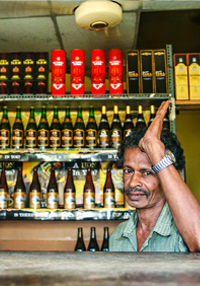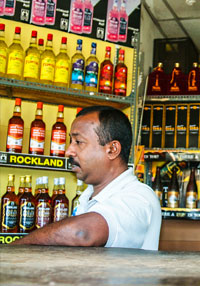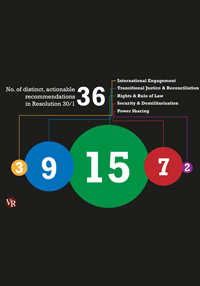The Cabinet decision to withdraw Excise Notification No.02/2018 is unconstitutional. The Notification removes the ban on the sale of liquor to women within the premises of a tavern. This brief explains why the Cabinet decision constitutes an imminent infringement of the fundamental right to equal protection.
On 10 January 2018, the Minister of Finance and Mass Media amended Excise Notification No.666 of 31 December 1979. It is widely believed that by this act the Minister revoked a prohibition on the sale of liquor to women. The President and the cabinet responded by asking for the amendments to be reversed. This reversal is widely believed to have reinstated the previous prohibition on women purchasing liquor. Verité Research finds both these views to be poorly-informed.
This is Verité Research’s latest study on the Sri Lankan government’s commitments on reconciliation and accountability. The ongoing UNHRC Session began on 26 February 2018, and will include a discussion on Sri Lanka’s progress in this regard. This report analyses the government’s progress in fulfilling all 36 commitments made inUNHRC Resolution 30/1, as at 26 February 2018.
Criminal justice institutions re-victimise children. This report details the legal and institutional challenges impeding justice for children in Sri Lanka. The report also details specific recommendations to divert children away from the justice system, and prevent institutionalisation being a matter of first resort.
The report Right to Information: Discourse and Compliance in Sri Lanka was compiled in collaboration between Verité Research and Democracy Reporting International (DRI). Verité Research analysed the right to information in the Sri Lankan context while Democracy Reporting International detailed international best practices relating to proactive disclosure. The study examines the drafting of Sri Lanka’s RTI Act and existing laws that are inconsistent with its provisions. It recommends strategies to strengthen proactive disclosure of information, and to amend laws inconsistent with the RTI Act.
The recent Court of Appeal judgement on SLFP MP Geetha Kumarasinghe’s disqualification from Parliament due to her dual citizenship has sparked a debate on whether the disqualification of candidates invalidates nomination papers. This briefing note discusses this issue and argues that nomination papers cannot be invalidated on the basis that a candidate is disqualified from being elected to parliament.
This briefing note is Verité Research’s latest study on the Sri Lankan government’s commitments on reconciliation and accountability. It assesses progress in the fulfillment of 36 commitments made in UNHRC Resolution 30/1, co-sponsored by Sri Lanka in September 2015.
This brief, published by our legal team, analyses the limitations on the powers of the Executive President to assign subjects and functions to Ministers under the 19th Amendment (19A) to the Constitution. In particular, this paper argues that the Constitution and the 19th Amendment prohibit the President from assigning the subject of the Office on Missing Persons Act (OMP) to himself, and consequently from appointing the date on which the provisions of the OMP Act comes into operation.








